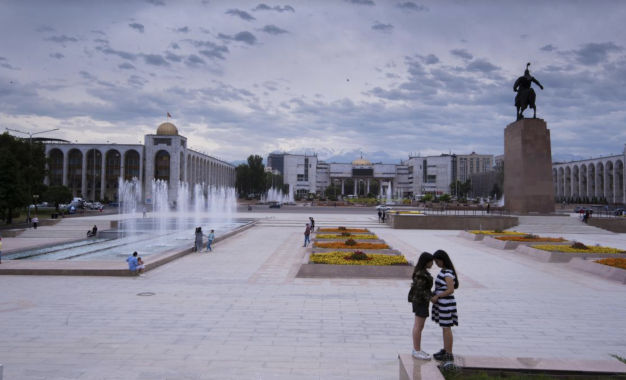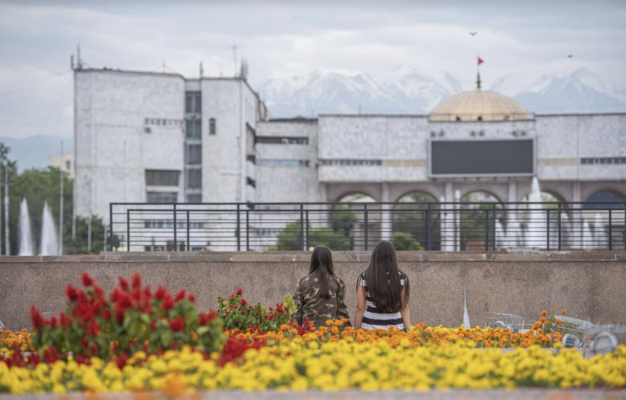
The struggles of children left behind by migration at the time of COVID-19
We can only imagine what it must be like, as teenage sisters, to have your family ripped apart and be left to rely on each other to make ends meet, while facing an ever-present threat of violence and abuse. This is a story that may never have a entirely happy ending, but there is hope for Tolgonai (14) and and Aisuluu (17), thanks to a UNICEF & EU initiative that helps vulnerable youngsters.
Aravan is a small town in Kyrgyzstan, a stone’s throw from the border with Uzbekistan. Located on the historical silk route, over the last centuries it has seen an endless flow of merchants and traders passing by looking for opportunities and exchanges. On its outskirts, not far from petroglyphs dating back to the first century BC, these two remarkable girls try to make the best of their desperately sad situation.
Over the past few years, they have struggled to maintain any sort of ‘normal’ life, only managing to make ends meet each month through the financial support sent by their mother and older brother who have migrated to Russia. However, the abrupt loss of remittances, owing to the COVID-19 emergency, complicated further with the difficult relations with their father who suffers from chronic alcoholism amid violence and abuses. Life became more anguished than ever, and they could only continue to keep on going through occasional charity and food assistance.

This was the moment when ‘Akchach’, one of the psychologists from the Center for the Development and Protection of Vulnerable Populations, supported by UNICEF in the framework of the European Union’s Protecting Children Left Behind by Migration project came into their lives, offering much-needed help and support.
At first the support was based on remote over the phone psychological assistance in order to comfort them and rebuild – at least partially– their self-confidence
The next step was to provide them with a safe space in the neighbouring crisis centre, where they could live safely, free from the threat of violence, and able to continue their studies. While this was happening, the legal procedure for assigning a legal guardian within the extended family was being initiated with the local court through the Ministry of Labour and Social Department.
According to 2019 UNICEF estimates, in Kyrgyzstan there are over 250,000 children left behind by migrating parents, with 120,000 of them separated from both parents. Not surprisingly, the COVID-19 pandemic has only made their lives even harder and exposed them to higher risks of violence. For this reason, UNICEF is stepping up its support to make sure that each child will have an accountable and responsible adult ready to protect their best interest. At the same time, a rapid assessment to assess the specific challenges emerging from the COVID-19 crisis has been launched in cooperation with the International Organisation for Migration (IOM), and this will be the basis for future targeted interventions.
‘A hard choice they will need to take’
When asked about their hopes and fears, Tolgonai and Aisuluu firmly agree that they will not return to their father, and so avoid further violence and abuse. At the same time, they talk of their worries about being negatively judged by their relatives, a hard choice they will need to take with the support of specialized psychologists as well as social workers. While the project has so far reached more than 1,200 children, efforts will continue to build structural solutions to the challenges faced by these two sisters and many more like them.
And while Tolgonai and Aisuluu’s present looks so uncertain, they are at least comforted of the support they are receiving can look to the future with renewed optimism and hope.
The names of the two girls have been changed in order to protect their identity.
With thanks to UNICEF for providing the case study. Images copyright UNICEF.




